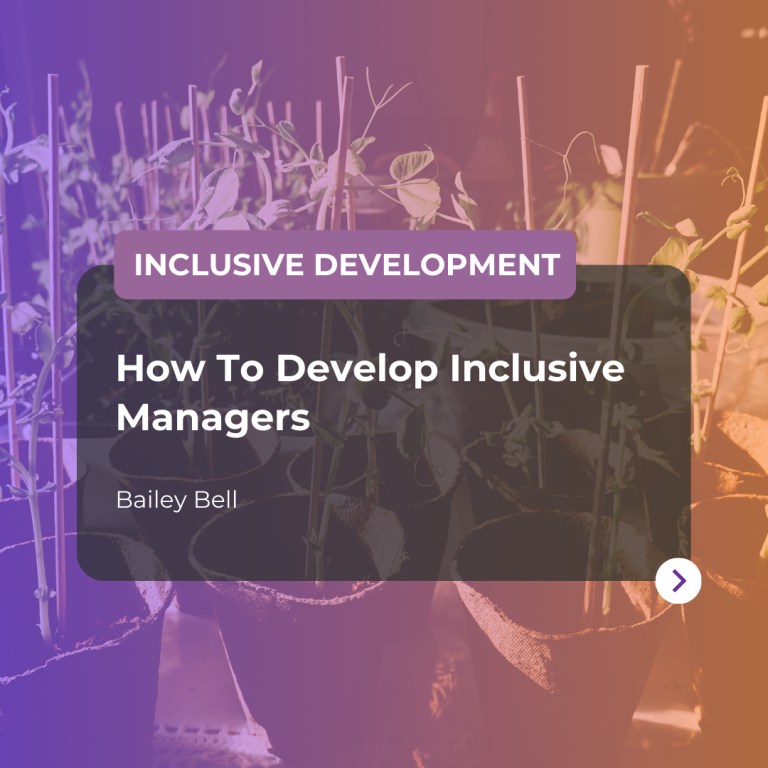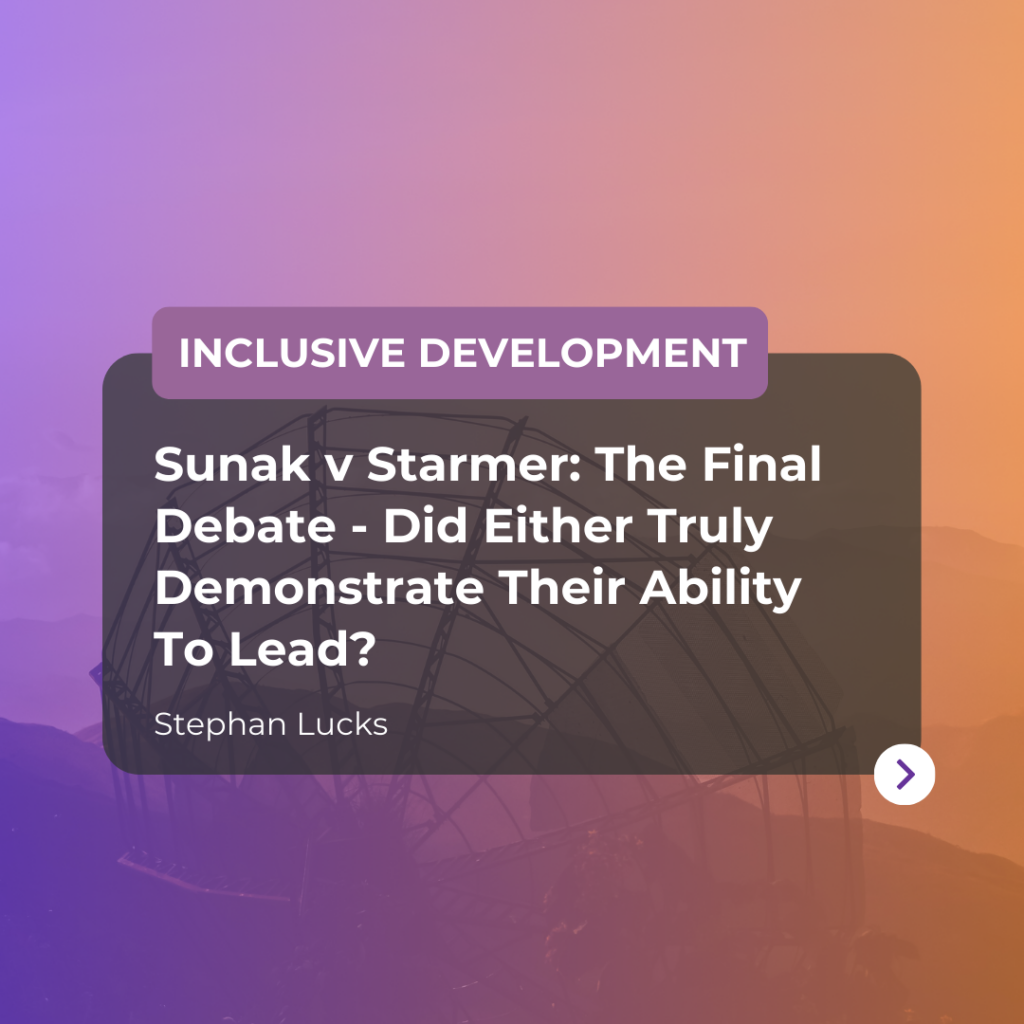Many companies have spent countless hours trying to incorporate diversity and inclusion into their organisations.
However, one in five (20%) people don’t think their company is an inclusive place to work according to studies.
At Pearn Kandola, we have decades of experience in improving diversity and inclusion in organisations globally.
Part of this involves researching, designing, and conducting development interventions to strengthen talent pipelines and upskill colleagues in roles. In this, we ensure that there are inclusive processes and development opportunities for all employees.
Our Findings
From our work, we have learned that managers play a key role in developing staff and that it is crucial for managers to find ways to be proactive and inclusive in supporting their team members’ development.
If managers do not do this effectively there are several risks, namely:
- Staff may feel demotivated in their roles due to a lack of feedback and opportunities to develop.
- The organisation may have issues attracting and retaining diverse talent.
- Team performance may suffer if individuals lack the skills required to do the role.
- There may be a lack of diversity at senior levels if there are no inclusive practices to support the development of diverse staff.
To support managers and organisations more broadly in avoiding these risks and to carry out their role effectively, we have provided guidance based on research and best practice around developing staff inclusively.
Guidance for Managers
In the pursuit of an inclusive workplace, it is essential that managers understand their role in developing their staff inclusively.
Invest Time
As managers, it is important to invest time in getting to know your team members and their interests.
This should not only be done during the onboarding stage, personal development plans, quarterly reviews, and appraisals, but also through regular one-to-ones and informal conversations with team members to understand their ambitions, challenges, and support they may require.
Doing so shows that you value your team members and will equip you with the information you need to find valuable opportunities in line with their ambitions and interests.
Provide Specific Feedback
Feedback is key for development. Feedback is particularly useful if it is timely and focused on specific behaviours.
To develop your team members, ensure that you are providing feedback on their work regularly. In this feedback, you should highlight areas where the individual has done well and discuss ways to improve on the areas where they could do better.
Doing this ensures that the individual can develop and will also help to enhance team effectiveness, where you are addressing underperformance. In providing feedback, be sure to highlight where an individual has made progress and celebrate this success.
Build Awareness of Your Biases
Biases can undermine your ability to support and advocate for your team members. Therefore, you should take steps to uncover your biases by reflecting on the recent decisions you’ve made (e.g., do you see patterns in the people you’ve allocated work to recently) and/or by utilising tools such as the Implicit Associations Test.
Once you understand your biases, you can manage these by looking out for them and challenging yourself to justify the reasons for your decisions (e.g., are you giving somebody a high-profile project because they have all the skills for the role or are you giving it to them because you like them the most or share something in common).
Provide Opportunities
Valuable development opportunities that stretch your team members can help to develop their skills and their profile.
As a manager, you should be considering what opportunities are on the horizon that would be best suited to your team members and work with them to get them access to these. This may involve encouraging them to put themselves forward by emphasising their skills.
You may also need to advocate for your team members with your peers or other stakeholders, building their social capital by highlighting their skills and the value that they can bring to the task or project.
Guidance for Organisations
Provide Mechanisms for Feedback
We are much more likely to act when we have clear feedback.
Therefore, to empower managers to develop their team members effectively, you should provide the opportunity for managers to receive feedback from colleagues on their approach to development and how inclusive they are.
You may also consider adding KPIs around this into your standard appraisal approach.
Upskill Managers
If you want managers to be effective, it is important to not only provide guidance on a standard process to follow; you should be providing training and coaching support to managers to help build their understanding around the importance of inclusive development, and how they can do this effectively in practice (for example, how to deliver feedback effectively and how to coach team members).
Providing the opportunity for managers to discuss and work through their challenges with an experienced coach can also help managers to navigate nuanced scenarios that may arise thus enhancing their effectiveness.
How To Develop Your Managers’ Skill Sets
Here at Pearn Kandola, we are one of the leading DEI consultancies when it comes to developing inclusive leaders.
Inclusive behaviour in management is an essential skill to develop and is imperative to the success of a diverse group of employees to empower them and encourage their authenticity and collaboration in today’s business world. Being able to support your staff, namely your managers and leaders in their development and ensure peak inclusivity and opportunities is crucial in fostering a positive working environment.
Supporting your staff to work toward the ideal qualities of inclusive teams and inclusive management will in turn embrace the idea that each employee is valued and result in an inspired team who are more effective and will have higher job satisfaction and increase the overall happiness in the atmosphere of your organisation.
To discuss how our inclusive leadership programme can be of service to your organisation – get in touch with one of our business psychologists today to discuss a tailored approach to your organisation’s diversity, inclusion and equity goals. Email info@pearnkandola.com.








